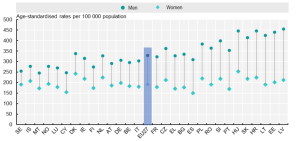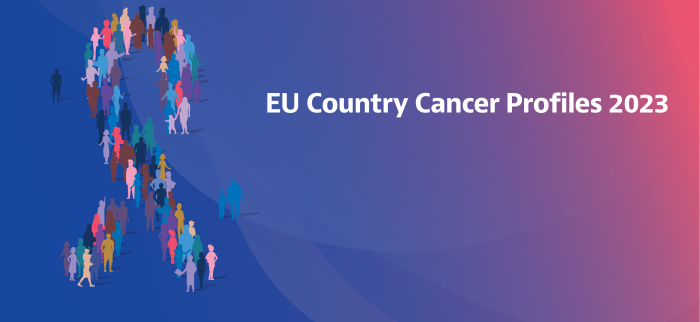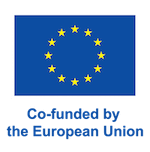The first Country Cancer Profiles under the European Cancer Inequalities Registry state significant inequalities in cancer mortality rates between and within EU member states. These reports reveal that varying exposure to risk factors for cancer and the different capacity of healthcare systems to provide timely and free access to early diagnosis, as well as high-quality cancer care and treatment, partly explain these inequalities.
The Country Cancer Profiles consist of a concise yet comprehensive analysis of cancer burden and policies in the 27 EU states, plus Norway and Iceland. The documents were launched last 1st of February 2023 at the ‘Cancer – Equity, excellence and innovation: modern cancer care for all’ conference, co-organised by the European Commission and the Swedish Presidency of the Council of the European Union.
During the event, the Head of the Health Division at the Organisation for Economic Co-Operation and Development (OECD), Francesca Colombo, highlighted some of the report’s key messages. All of them rely on the idea that “there are large and unacceptable inequalities across the European Union. No matter what indicator you look at, you will find differences across countries, differences across population groups; and much of these is something on we can act”, emphasised Colombo.
Inequalities across the European Union
The difference in mortality rates becomes substantial when comparing central and eastern European countries to the remaining EU countries. Even within the same state, relevant inequalities across population groups are visible. According to Caroline Brechet and other OECD representatives, “cancer mortality rates are 75% higher among men than women across EU countries”, while “less educated individuals have higher mortality rates for nearly all types of cancer than their more highly educated counterparts”.
Addressing these disparities requires national and international efforts to identify the EU’s main challenges regarding cancer continuum care, targeting population groups, sharing best practices between member states and boosting comprehensive prevention policies.
As Colombo mentioned, policies on alcohol consumption are real examples that take a comprehensive approach and can be translated to the cancer field. In the case of alcohol, there is the PPPP approach, which combines Police enforcement to limit alcohol-related injuries, Protecting children from alcohol promotion, Primary health care and Pricing policies.
The gender gap is still visible
Looking at the report’s graphics and numbers, Francesca Colombo explained that cancer mortality rates have decreased over time in almost all member states. However, there are countries in which the efforts for reducing cancer mortality are not enough and where the gender gap is still visible.
Although male mortality levels have decreased more than women over time, some countries present significant gaps. In this sense, Nordic countries perform better, showing more gender equity.
Graphs on cancer mortality rates by country and gender indicate that female mortality levels among countries tend to be shorter than those we can find in data on men’s mortality. This fact suggests that efforts to reduce mortality among men need to be done in order to reduce the overall mortality rates.

Cancer mortality rates of men and women across EU countries. / OECD
Low social economic groups suffer higher cancer mortality rates
The profiles also ratified how determinant socio-economic inequalities are in cancer mortality. The Head of the Health Division at the OECD suggested that prevention policies and interventions need to focus on social-economic disadvantaged groups and lower-educated groups.
In this sense, the OECD representative explained that a large part of gender and socio-economic gaps are linked to modifiable risks factors for cancer, such as poor lifestyle, smoking, obesity or alcohol consumption. Colombo reiterated that addressing those inequalities “is probably where we can make the further gain”.
References:
Berchet, Caroline, Dedet, Guillaume, Klazinga, Niek, and Colombo, Francesca. “Inequalities in cancer prevention and care across Europe”. The Lancet Oncology. 24,1: 10-11. (2023)
OECD. “EU Country Cancer Profiles“. OECD Publishing. (2023)
![]() Co-funded by the European Union. Views and opinions expressed are however those of the author(s) only and do not necessarily reflect those of the European Union or HaDEA. Neither the European Union nor the granting authority can be held responsible for them.
Co-funded by the European Union. Views and opinions expressed are however those of the author(s) only and do not necessarily reflect those of the European Union or HaDEA. Neither the European Union nor the granting authority can be held responsible for them.
 OECD
OECD

